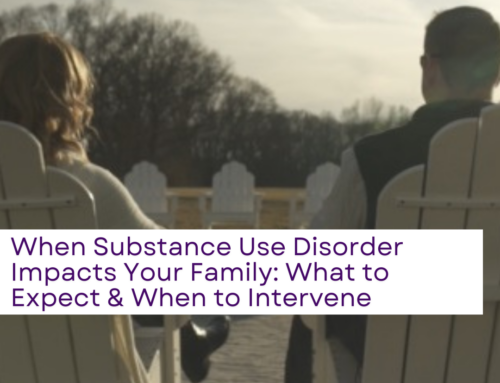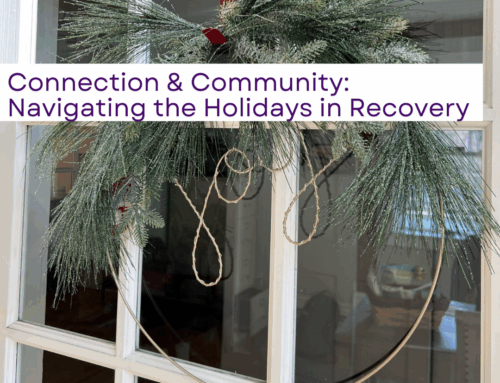
This time of the year is all about giving to others- however it is also a good time to think about what you can give to yourself to enhance well-being. Forgiveness is often described as a “gift” and there is a reason for it: Resentment can cause your blood pressure to spike and trigger the release of stress chemicals that can make you physically sick. Holding onto resentments hinders our physical, emotional, and spiritual health.
At Herren Wellness it is important that we work with guests to address resentments so their path of recovery is clear, and they are able to move forward in the forgiveness process.
This week we cover five ways you can practice forgiveness, and give yourself the gift of freedom.
1. Feel Your Pain (and Understand Forgiveness)
Forgiveness is defined as the act of forgiving others or being forgiven, it is a change from a negative to a positive or neutral standpoint over a perceived or actual wrong. It is important when someone hurts us to feel our feelings of pain. If you try and bypass feeling hurt, resentment is likely to linger and will come up later. Pain can manifest in different ways such as guilt, grief, shame, sorrow, confusion, or anger. When these feelings arise ask yourself what you need in that moment whether that is self care, support, exercise to release energy, or a recovery meeting. A misunderstanding about forgiveness is that you may be letting someone off the hook for something they did and making the transgression “ok”, however forgiveness is about releasing the pain and emotion from your heart and mind, and moving forward in your life. The experience of forgiveness is one of the most healing things that you can do for yourself, setting yourself free from the bonds that tie you to the other person.
2. Practice Mindfulness
When practicing mindfulness the mind has a chance to quiet and clear negative thoughts that cloud judgement and perspective. Seeing things from a clear mindset helps pave the way for forgiveness.
A Mini Forgiveness Practice:
Try this short practice once a day and feel your forgiveness muscles growing.
Think of someone who has caused you pain (to start, maybe not the person who has hurt you most) and you’re holding a grudge against. Visualize the time you were hurt by this person and feel the pain you still carry. Hold tightly to your unwillingness to forgive. Now, observe what emotion is present. Is it anger, resentment, sadness? Use your body as a barometer and notice physically what you feel. Are you tense anywhere, or do you feel heavy? Next, bring awareness to your thoughts; are they hateful, spiteful, or something else?
Really feel this burden associated with the hurt that lives inside you, and ask yourself:
“Who is suffering?
Have I carried this burden long enough?
Am I willing to forgive?”
If the answer is no, that’s OK. Some wounds need more time than others to heal.
If you are ready to let it go now, silently repeat: “Breathing in, I acknowledge the pain. Breathing out, I am forgiving and releasing this burden from my heart and mind.”
Continue this process for as long as it feels supportive to you. (Source)
3. Tap Into Empathy
Empathy is the ability to understand and share the feelings of another. At Herren Wellness the topic of the week for groups with the life coaches is family. Guests are asked to explore their family origins and talk about difficult relationships. In one exercise, the life coaches asked guests to describe how their parents grew up, and through understanding their circumstances and what they went through, a guest could often find empathy for their mother or father. Empathy is one of the strongest tools we have in the forgiveness process. The emotional states of empathy versus resentment can be felt both physiologically and psychologically. Resentment creates a cold emotional state where a person is stuck in negative feelings. Empathy is a warm state where a person is no longer frozen in the negative, with empathy they can exhibit the power of choice and lean into forgiveness. A deep sense of empathy can not coexist with un forgiveness for long, eventually it will lead into forgiveness. Empathy connects us with each other and is an integral component in the forgiveness process.

4. Take Small Steps
Forgiveness does not happen overnight. It is important to feel your feelings regarding the hurt that you experienced, however this is not a place where you want to get stuck. Setting yourself on a path of healing requires small actions that will lead in the direction of forgiveness:
- Write a letter detailing your pain. This can be sent to the person, or simply kept for yourself
- Have an uncomfortable conversation. You may not want to sit down and hear the other person out, but a conversation could move you forward
- Pray for the person. It is common advice in 12 step work that when someone has harmed you, pray for them everything you’d wish for yourself. Typically doing this consistently allows the heart to soften
- Become “forgivingly fit”. Instead of tackling your biggest resentment, start smaller. Reach out to a friend or family member whom you fought with last week and mend fences. Going through this process with smaller misdeeds allows you to feel empowered to tackle the big ones.
5. Forgive Yourself
Numerous studies have demonstrated that when people practice self-forgiveness, they experience lower levels of depression and anxiety. Similarly, self-compassion is associated with higher levels of success, productivity, focus, and concentration. Often however, we are harder on ourselves than we are on others, especially true for those in recovery from substance abuse. In our past we often acted in ways that we would not have if we were sober. When we get stuck in ruminating over our past we experience self loathing which leads to not taking care of ourselves. It can become a cycle leading to a discontented sobriety. Self forgiveness allows us to see the past version of ourselves as doing the best we possibly could at the time. We can see ourselves fully and love our strengths and weaknesses. Part of this journey to self forgiveness involves seeking forgiveness from others. In 12 step work this pertains to steps 8 and 9, where we make amends with those we have harmed. By going through this process we can mend relationships, or make peace with the past and move forward in our new life in recovery.

At Herren Wellness we understand that forgiveness can be difficult. When entering recovery, there is often wreckage of the past and resentment on both sides. It takes time, but mending these relationships through forgiveness sets each person on a path where they can love and trust one another… and there is no greater gift.
“It’s not an easy journey, to get to a place where you forgive people. But it is such a powerful place, because it frees you.” -Tyler Perry
About Herren Wellness
Herren Wellness is a thriving community of people at all stages of their recovery journey. We introduce healthy habits and routines centered around emotional, physical, and spiritual wellness that provide a solid foundation for rediscovering your interests, experiencing joy in sobriety, and building structure and routine.
We provide several alumni support communities, including a weekly recovery support group, monthly alumni meeting, and online alumni community you can access anytime. Your connection to Herren Wellness doesn’t end when your stay ends; we are there for you throughout your recovery journey.
If you, or a loved one, are looking for help, please call us at (844) 443-7736, email us at info@herrenwellness.com, or fill out a contact form. You are not alone.





